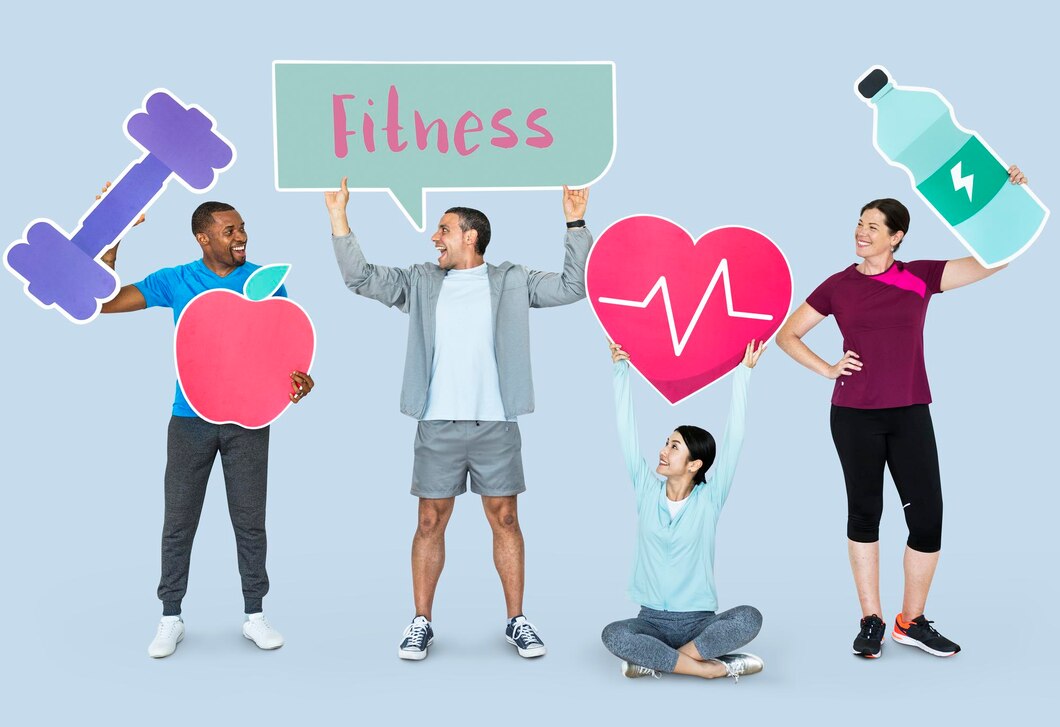A healthy lifestyle involves making small everyday decisions that enhance your health in the long run. You don’t require perfect habits, nor do you require significant changes. The World Health Organization states that 60% of your health relies on the daily lifestyle decisions you make (WHO, 2023).
A Harvard study reveals that five simple healthy habits can add 14 years to your life. These are not secrets; they are easy things to do.
Let’s examine the key components of a healthy lifestyle that really work in the real world.
Essential Takeaways
- Small daily choices matter more than perfect habits for long-term health.
- Your mental health is just as important as your physical health.
- Good sleep makes all your other healthy choices work better.
- Strong friendships give health benefits equal to major lifestyle changes.
1. Physical Activity: Moving Your Body Daily
Physical activity is the base of good health because it helps your heart, brain, and mood all at once. It also works as medicine for treating depression, and the best part is that you don’t need much to see results.
How Much Exercise Do You Need
You need just 150 minutes of moderate exercise each week, plus two days of strength training (CDC Guidelines, 2023). That’s only 30 minutes, five days a week.
Even 11 minutes of daily exercise cuts your risk of early death by 23%, according to the British Medical Journal. A quick walk during lunch can change your health completely.
Making Exercise Stick
Exercise is best when you have fun rather than piling it on. Try these easy tips:
- Choose things that fit your day (morning stretching, lunch walking, evening bike rides)
- Track steps or minutes to watch your progress
- Work out with friends or check out a local group
- Alternate between activities to keep things fresh
2. Nutrition: Eating Real Food
Nutrition influences how you feel, your energy level, and your chance of getting ill. Poor eating causes about 678,000 deaths in America each year (Journal of the American Medical Association, 2023).
Why Whole Foods Matter
Whole foods are simple foods without added chemicals or processing. Eating Mediterranean-style (lots of vegetables, fruits, whole grains, and olive oil) cuts heart disease risk by 31%, according to the New England Journal of Medicine.
This way of eating focuses on food quality, not counting calories. Choose foods with one ingredient, like apples, rice, or chicken.
Simple Eating Tips
Good nutrition is easier than you think. Follow these basic rules:
- Make half your plate vegetables at meals
- Pick brown rice and whole wheat bread over white versions
- Keep added sugar under 25 grams daily
- Drink 8-10 glasses of water each day
3. Mental Health: Taking Care of Your Mind
Mental health controls how well you can keep up other healthy habits in your healthy lifestyle. When you’re stressed for too long, your body gets inflamed, you can’t sleep well, and you might eat junk food or drink too much. Taking care of your mental health helps everything else fall into place.
Managing Daily Stress
Managing stress means knowing what stresses you out and having ways to deal with it. Just 10 minutes of meditation daily lowers stress hormones by 23%, says Johns Hopkins University.
You can meditate anywhere without any equipment. Regular stress management stops small stresses from becoming big health problems.
Getting Mentally Stronger
Being mentally strong helps you handle life’s problems better. Research from the University of Pennsylvania found that being grateful makes people 25% happier and helps them sleep better.
Try these mental health habits:
- Write three things you’re thankful for each morning
- Take deep breaths when stressed
- Turn off work emails after hours
- Spend time with people who support you
4. Sleep: Your Body’s Repair Time
Sleep is when your body fixes itself, saves memories, and balances hormones. Adults need 7-9 hours of sleep, but 35% of Americans get less than seven (Sleep Foundation, 2023).
Why Sleep Matters So Much
During sleep, your body makes hormones that control hunger, which is why tired people often overeat. Your brain also cleans out waste that can cause Alzheimer’s disease.
Getting enough good sleep matters more than just time in bed. Waking up often or sleeping lightly doesn’t give your body the rest it needs.
Better Sleep Tips
Good sleep begins with consistent habits. Make your bedroom sleep-conducive:
- Keep your room between 60-67°F
- Avoid using phones 30 minutes before bed
- Go to bed at the same time every evening
- Avoid drinking coffee after 2 PM
5. Social Connections: Friends for Health
Good connections impact your health as much as food and exercise. People with strong friendships live 50% longer than lonely people. This is as powerful as quitting smoking for your health.
How Friends Help Your Health
Good relationships lower inflammation, boost your immune system, and help you handle stress. Being lonely is as bad for you as being obese.
Spending time with family, friends, or community groups protects your health in ways pills can’t. Even short, friendly chats release hormones that help your body and mind.
Frequently Asked Questions
1. How long does it take to build a healthy habit?
Building a habit takes about 66 days on average, according to University College London research. Some habits take just 18 days while others need up to 254 days, depending on how hard they are.
2. Can busy people maintain a healthy lifestyle?
Yes, busy people can stay healthy by planning ahead and making smart choices. Prep meals on weekends, do quick 10-minute workouts, and walk during phone calls.
3. Which healthy habit should I start first?
Start with better sleep because it affects everything else. Bad sleep makes eating well harder and kills your motivation to exercise.
4. How much water do I really need?
Men need about 15.5 cups (3.7 liters) and women need 11.5 cups (2.7 liters) daily, says the National Academy of Medicine. This includes water from food and other drinks.
5. Does a healthy lifestyle cost a lot?
A healthy lifestyle doesn’t need expensive gym memberships or organic food. Walking is free, bodyweight exercises need no equipment, and regular vegetables cost less than processed foods.
Conclusion
Building a healthy life can’t be complicated or perfect. Build small, easy habits each day that lead to enormous health benefits. Start with one easy habit, like better sleep or a daily walk, and build from there.
All the good decisions—small or large—benefit your body. Listen to what feels right for you and keep at it. Your healthy journey is personal, and every step counts. Start simple today!






